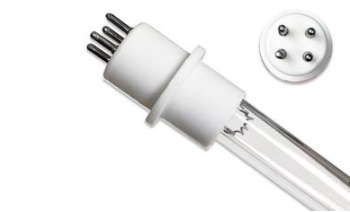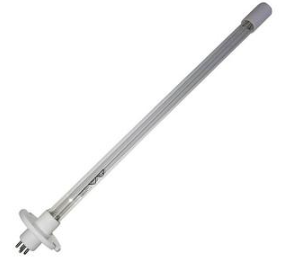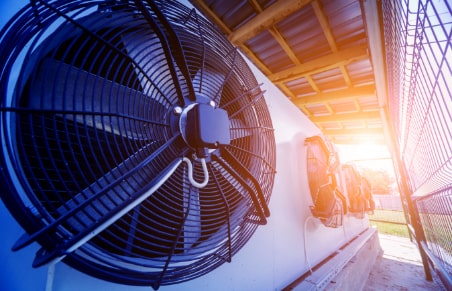UV Light for Disinfection of Water: A Better Alternative to Chlorine
When it comes to water disinfection, most people instantly think of chlorine as a water sanitizer. Although chlorine has been long used to disinfect water, there are certain disadvantages to using it.

Disadvantages of Using Chlorine as Disinfectant
- Using chlorine as a disinfectant causes the water to have a distinct smell. This smell occurs due to the formation of chloramines. This smell can be especially off-putting for drinking water.
- Chlorine also causes damage to hair and skin. Using chlorinated water to bathe or wash your hair can have adverse effects on the overall quality.
- Although chlorine eliminates several bacteria and other contaminants, it is still ineffective to several viruses and other contaminants.
- Similar to a distinct smell, using chlorine also gives the water a bad taste. This can be very off-putting when you use chlorine to disinfect drinking water.
What Is a Better Alternative to Chlorine for Water Disinfection?
UV light for disinfection of water is the best alternative to using chlorine for water treatment.
UV lamps emit UV light at the wavelength of 200 to 300 nm, which has germicidal effects. The light causes a reaction with the DNA and RNA of the bacterial and viral cells. This reaction distorts the genetic material, making them incapable of dividing and reproducing, thus reducing the infection.
The use of UV lamp for water treatment has gained rapid momentum in the past few years and for the right reasons.
Benefits of using UV Lamp for Water Treatment
Highly Effective at Killing Pathogens
Unlike chlorine which is effective only a few types of pathogens, UV light for disinfection is effective on a larger array of pathogens. This includes pathogens causing serious diseases in humans.
It can render pathogens ineffective, causing diseases such as hepatitis, typhoid, cholera, intestinal parasitic diseases, and polio. UV light is also effective at killing pathogens dangerous to public health, including Giardia and Cryptosporidium. Hence, there has been a sudden increase in using UV lamp for water treatment in wastewater treatment plants.
Chemical Free Disinfection
As mentioned above, using chlorine can generate chloramines which can be detrimental to the health of skin and hair.
However, using UV light for disinfection doesn’t create any harmful chemical byproducts. This offers chemical free disinfection. Hence, it is also easy to use in residential spaces since disposing of chemical byproducts can be difficult.

Easy to Handle
Chlorine is highly corrosive. And hence, you need to take utmost care to store chlorine.
However, using UV lamps for water treatment is easy. There is no such special care to be taken once UV lamps are installed in the right place to disinfect water. The only thing you need to ensure is to replace the UV lamps every year.
Environmentally Friendly
As mentioned above, using UV lamp for water treatment doesn’t create any chemical byproduct. Hence, it makes UV lamps environmentally friendly.
You don’t need to worry about disposing of chemical byproducts in the nearby region thus protecting the flora and fauna in the region.
Bottom Line
As you can see, using UV lamp for water treatment can be a better alternative to using chlorine in the long run. Not only it is effective to kill a large array of pathogens, it is also very environmentally friendly.
Whether you want to install UV lamps for residential or commercial water treatment, we at Light Spectrum Enterprises, Inc. can offer the right solutions. We provide OEM services to our clients globally. We provide a wide range of UV lamps for air, water, and surface sterilization for residential, industrial, commercial, and governmental spaces.
Contact us now to find out more.

